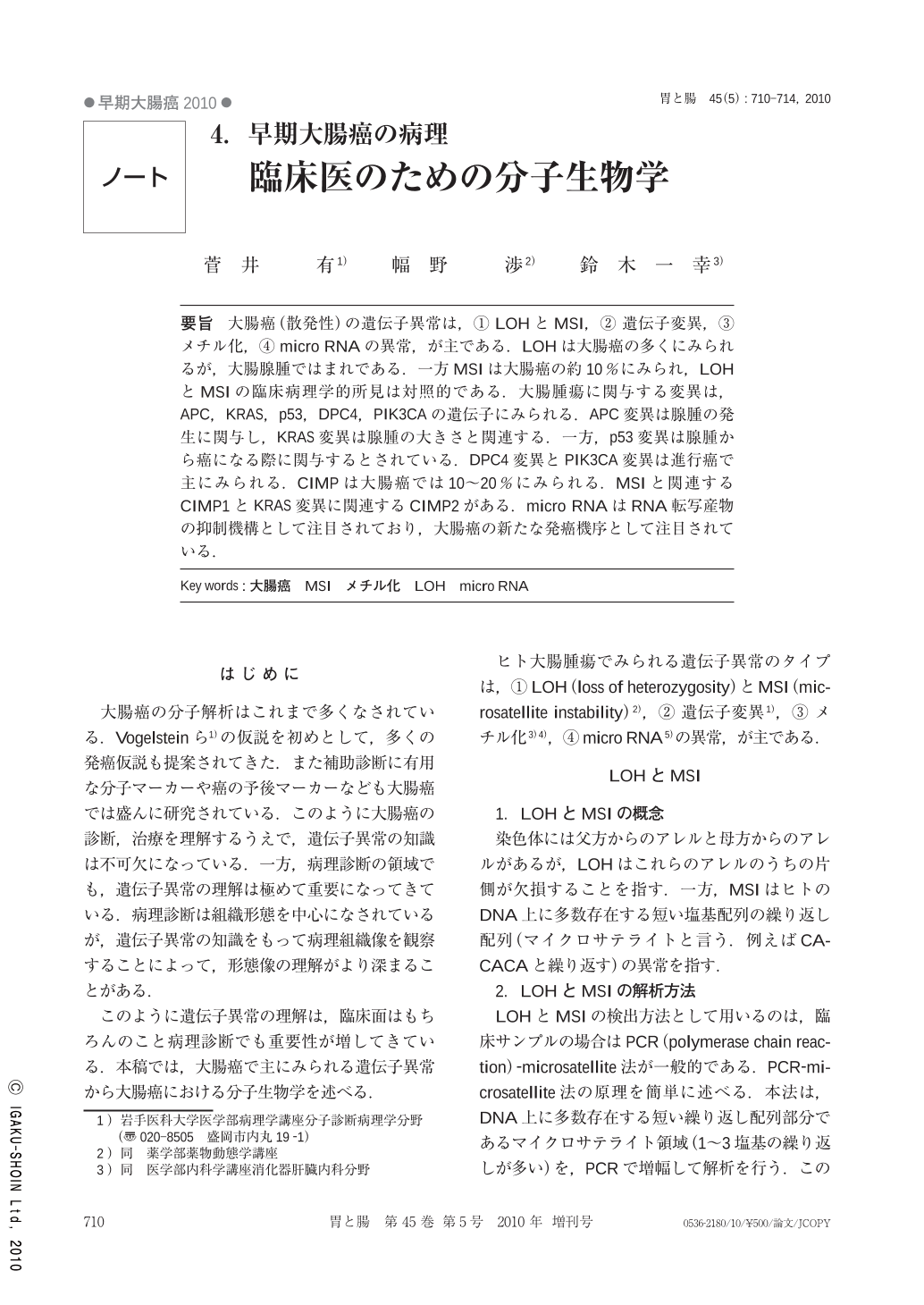Japanese
English
- 有料閲覧
- Abstract 文献概要
- 1ページ目 Look Inside
- 参考文献 Reference
要旨 大腸癌(散発性)の遺伝子異常は,(1)LOHとMSI,(2)遺伝子変異,(3)メチル化,(4)micro RNAの異常,が主である.LOHは大腸癌の多くにみられるが,大腸腺腫ではまれである.一方MSIは大腸癌の約10%にみられ,LOHとMSIの臨床病理学的所見は対照的である.大腸腫瘍に関与する変異は,APC,KRAS,p53,DPC4,PIK3CAの遺伝子にみられる.APC変異は腺腫の発生に関与し,KRAS変異は腺腫の大きさと関連する.一方,p53変異は腺腫から癌になる際に関与するとされている.DPC4変異とPIK3CA変異は進行癌で主にみられる.CIMPは大腸癌では10~20%にみられる.MSIと関連するCIMP1とKRAS変異に関連するCIMP2がある.micro RNAはRNA転写産物の抑制機構として注目されており,大腸癌の新たな発癌機序として注目されている.
CRC(colorectal cancer)is one of the most frequent cancers in the Western world. CRC development is genetically a multi-step process according to Vogelstein's theory. Four main pathways occur in CRC, including LOH(loss of heterozygosity), MSI(microsatellite instability), epigenetic silencing through the CIMP(CpG island methylator phenotype)and alterations of micro RNA. These pathways have distinct clinical, pathological, and genetic characteristics, which can be used for molecular classification and comprehensive tumor profiling in CRC. Molecular-biological research has advanced with the sequencing of the human genome and the availability of genomic and proteomic high-throughput technologies. This review aims to give an overview of the evolving molecular concepts in CRC and to have potential for clinical implications for gastroenterologists.

Copyright © 2010, Igaku-Shoin Ltd. All rights reserved.


